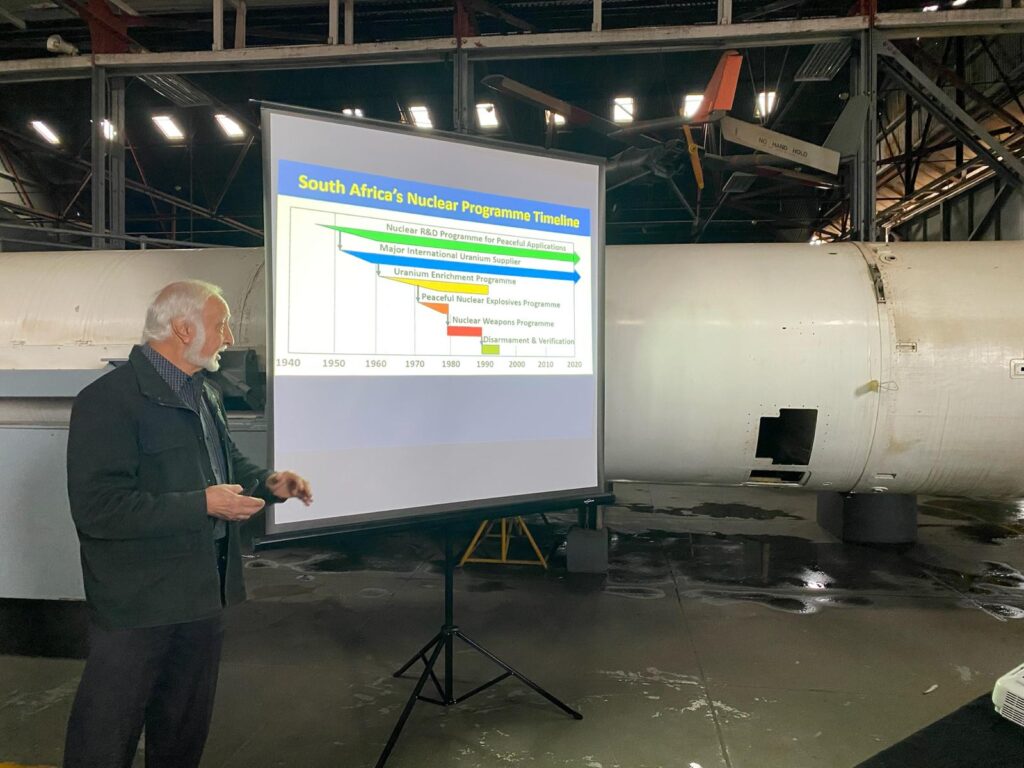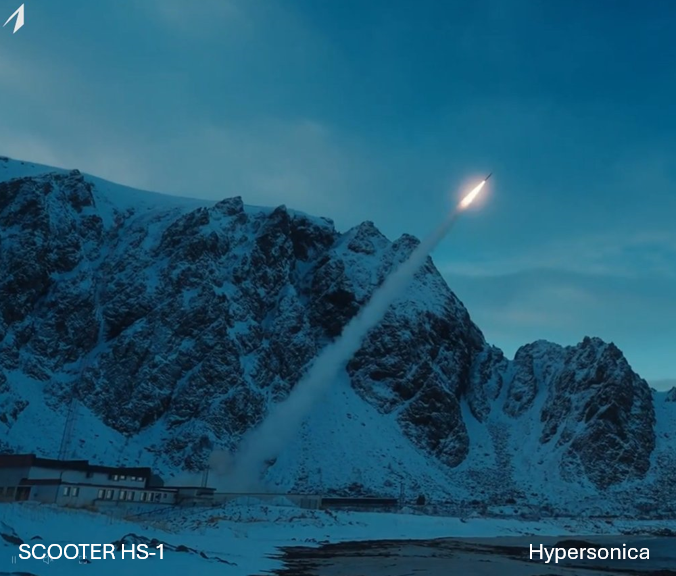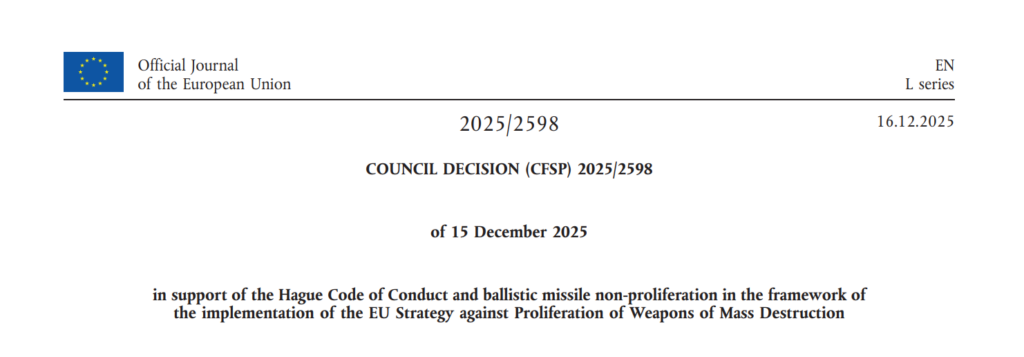ABOUT
FRS is implementing an EU-funded project on the HCoC and ballistic missile proliferation. Find out more here
Latest events
The seminar on 5 December 2025 in Geneva successfully gathered international experts and diplomats to address the evolving relevance of the HCoC. Discussions focused on how the Code can adapt to new geopolitical and technological challenges to reinforce its critical role in transparency and restraint.
On 3 December 2025, FRS organised an online webinar to discuss the critical dynamics between missile defence systems and global proliferation, anchored in the findings of the HCoC Research Paper N°15, “The Shield and the Sword”. The session highlighted the paradox that missile defences, while essential for protection, create incentives for adversaries to expand and sophisticate their arsenals, addressing resulting risks such as space militarisation and the necessity of confidence-building measures.
On 25-26 November 2025, the FRS, in cooperation with the Department of International Relations & Cooperation (DIRCO), hosted a Regional Seminar in Pretoria dedicated to ‘Missile Proliferation: What Role for Confidence-Building Measures Such as the HCOC?’. Representatives from South Africa , as well as governmental delegates from regional countries (including Angola, Democratic Republic of Congo, Kenya, Namibia, Eswatini, Lesotho, Madagascar, Malawi, Mauritius, Zambia, and Zimbabwe) , and officials from international organisations and other experts took part in this event.
On 25 November 2025, as part of our regional seminar in South Africa, participants were received at the South African Air Force Museum, located at the Air Force Base Swartkop (Pretoria). They attended a presentation by Andre Buys on South Africa’s Ballistic Missile Programme and its dismantlement.
LATEST PUBLICATIONS
SCOOTER HS-1: First Flight of an Experimental Hypersonic Launcher by Hypersonica
On 3 February 2026, the Anglo-German startup Hypersonica conducted the first hypersonic test flight of its SCOOTER HS-1 demonstrator from Andøya Space.
Ariane 64: A Successful Inaugural Flight on the Ariane 64 Heavy-Lift Configuration
On 12 February 2026, Arianespace successfully carried out the first heavy-configuration flight of the Ariane 64, marking an important step in the development of the European launcher.
CERES-2: An Unsuccessful Maiden Flight for Galactic Energy’s New Medium-Lift Launcher
China’s CERES-2 program faces a major setback as its first launch fails, highlighting the technological challenges in developing medium-class launchers.
News about the Code
EU Council Decision 2025/2598 in support of the HCoC
On 15 December 2025, the European Union adopted the Council Decision 2025/2598 in support of the Hague Code of Conduct against Ballistic Missile Proliferation.
Uruguay will chair the HCoC for 2025-2026
On 4-5 June 2025, Chile passed the Chairmanship of The Hague Code of Conduct to Uruguay during the 24th Annual Regular Meeting of subscribing states in Vienna.
Chile is appointed HCoC Chair for 2023-2024
On April 11-12, Chile assumed the rotating Chairmanship of The Hague Code of Conduct during the 23rd Annual Regular Meeting of subscribing states in Vienna.
Qatar notifies its subscription to the HCoC
On 11 March 2024, Qatar became the 145th subscribing state to the Hague Code of Conduct.










